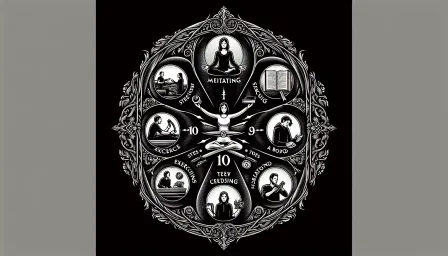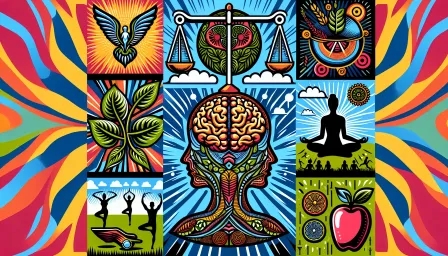Comparing Vegan Diet and Mediterranean Diet: Which is Healthier?

A detailed comparison between the Vegan Diet and Mediterranean Diet to help you understand which might be the healthier choice for you.
When it comes to choosing a diet that promotes optimal health, two popular choices are the Vegan Diet and the Mediterranean Diet. Both have their unique benefits and drawbacks. This article aims to provide a detailed comparison between the two, helping you decide which might be the healthier option for your lifestyle and health goals.
Understanding the Vegan Diet
What is a Vegan Diet?
A Vegan Diet is a plant-based eating pattern that excludes all animal products, including meat, dairy, eggs, and honey. It focuses on consuming fruits, vegetables, grains, legumes, nuts, and seeds. The primary motivation for adopting a vegan diet can range from health benefits to ethical and environmental concerns.
Health Benefits of a Vegan Diet
The Vegan Diet is often associated with numerous health benefits:
- Reduced Risk of Chronic Diseases: Research indicates that a vegan diet can significantly lower the risk of heart disease, high blood pressure, diabetes, and certain cancers.
- Improved Weight Management: Vegan diets are typically lower in calories and have been shown to aid in weight loss and maintenance.
- Better Digestion: High fiber intake from fruits, vegetables, and whole grains promotes healthy digestion and prevents constipation.
Potential Drawbacks of a Vegan Diet
While a Vegan Diet has many benefits, it also has potential disadvantages:
- Nutritional Deficiencies: Without careful planning, a vegan diet can lead to deficiencies in essential nutrients like vitamin B12, iron, calcium, and omega-3 fatty acids.
- Limited Food Choices: Eliminating all animal products can restrict food options, making meal planning more challenging.
- Social Challenges: Eating out or attending social gatherings can be difficult due to limited vegan-friendly options.
Understanding the Mediterranean Diet
What is a Mediterranean Diet?
The Mediterranean Diet is a balanced eating pattern inspired by the traditional dietary habits of countries bordering the Mediterranean Sea. It emphasizes consuming plenty of fruits, vegetables, whole grains, nuts, seeds, olive oil, and lean proteins such as fish and poultry. Moderate consumption of dairy and minimal intake of red meat and sweets are also key components.
Health Benefits of a Mediterranean Diet
The Mediterranean Diet is celebrated for its numerous health benefits:
- Cardiovascular Health: The Mediterranean Diet is rich in heart-healthy fats, such as those found in olive oil, and has been shown to reduce the risk of heart disease and stroke.
- Longevity: Studies suggest that following a Mediterranean Diet can contribute to a longer life expectancy.
- Anti-inflammatory Properties: The diet's emphasis on whole foods and healthy fats helps reduce inflammation in the body.
- Improved Cognitive Function: The Mediterranean Diet has been linked to a reduced risk of cognitive decline and Alzheimer's disease.
Potential Drawbacks of a Mediterranean Diet
While the Mediterranean Diet has many advantages, it also poses some challenges:
- Expense: The focus on fresh produce, fish, and high-quality olive oil can make this diet expensive for some people.
- Preparation Time: Many Mediterranean dishes require time for preparation and cooking, which might not be feasible for everyone.
- Moderation Required: The inclusion of alcohol in moderation, primarily wine, may not be suitable for everyone, particularly those with specific health conditions or alcohol sensitivities.
Comparing Vegan Diet and Mediterranean Diet
Nutritional Profile
The nutritional profiles of the vegan and Mediterranean diets offer both advantages and disadvantages:
- Vegan Diet: High in fiber, antioxidants, and vitamins C and E. However, it can lack certain nutrients like vitamin B12, iron, calcium, and omega-3 fatty acids.
- Mediterranean Diet: Well-balanced in terms of macro and micronutrients, providing a comprehensive array of vitamins and minerals. It includes healthy fats, protein, and fiber but can be higher in calories if not monitored.
Environmental Impact
Both diets are more environmentally friendly compared to the standard Western diet, but there are differences:
- Vegan Diet: Significantly reduces the environmental impact by eliminating animal agriculture, a major source of greenhouse gases, water use, and land degradation.
- Mediterranean Diet: While still more sustainable than a meat-centric diet, it includes animal products which can have a higher environmental impact than a purely plant-based diet.
Ease of Adoption
The ease with which one can adopt either diet varies and depends on multiple factors, including current eating habits, access to ingredients, and cooking skills:
- Vegan Diet: Can be challenging due to the elimination of all animal products. Requires education on nutrition to avoid deficiencies and creativity in meal planning.
- Mediterranean Diet: Often perceived as easier to adopt due to its variety of food choices and inclusion of moderate amounts of animal products, making it more flexible for most people.
Conclusion
Both the Vegan Diet and Mediterranean Diet offer significant health benefits, and choosing between them depends largely on individual health goals, ethical beliefs, and lifestyle preferences. The Vegan Diet is excellent for those who want to reduce their environmental footprint and embrace a plant-based lifestyle but requires careful planning to ensure nutritional adequacy. The Mediterranean Diet, recognized for its balanced nutrition and numerous health benefits, may be easier to sustain long-term for many people due to its flexibility and variety.
Ultimately, the healthiest diet is the one that you can maintain consistently while meeting your nutritional needs and lifestyle preferences. Consulting with a healthcare provider or a registered dietitian can provide personalized guidance to help you make the best choice for your health and well-being.



























